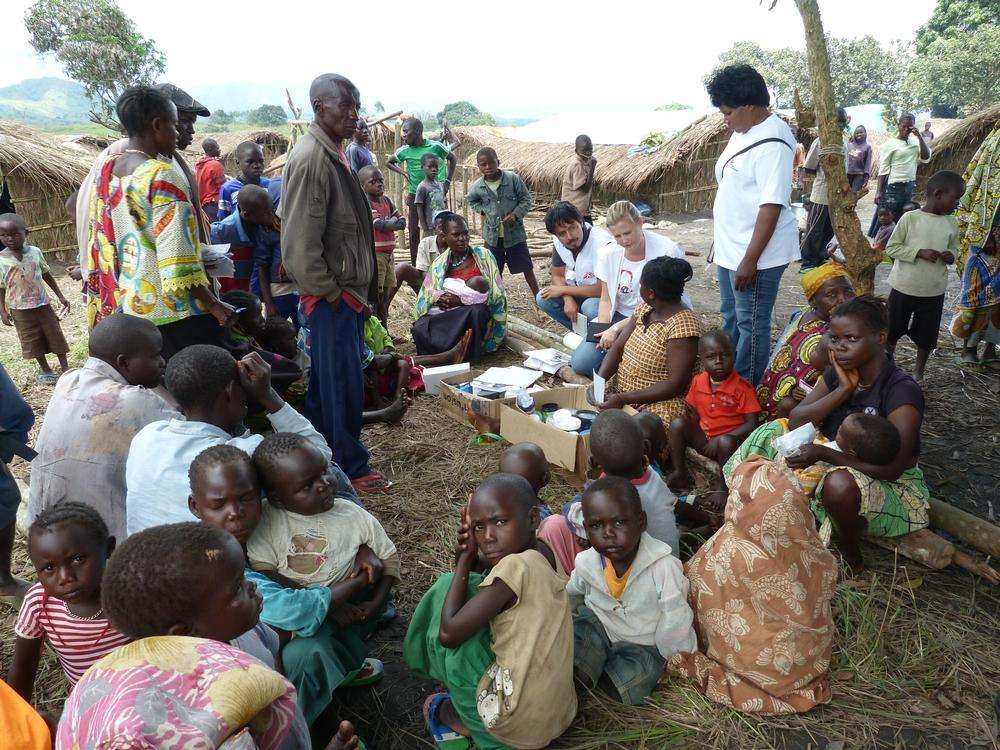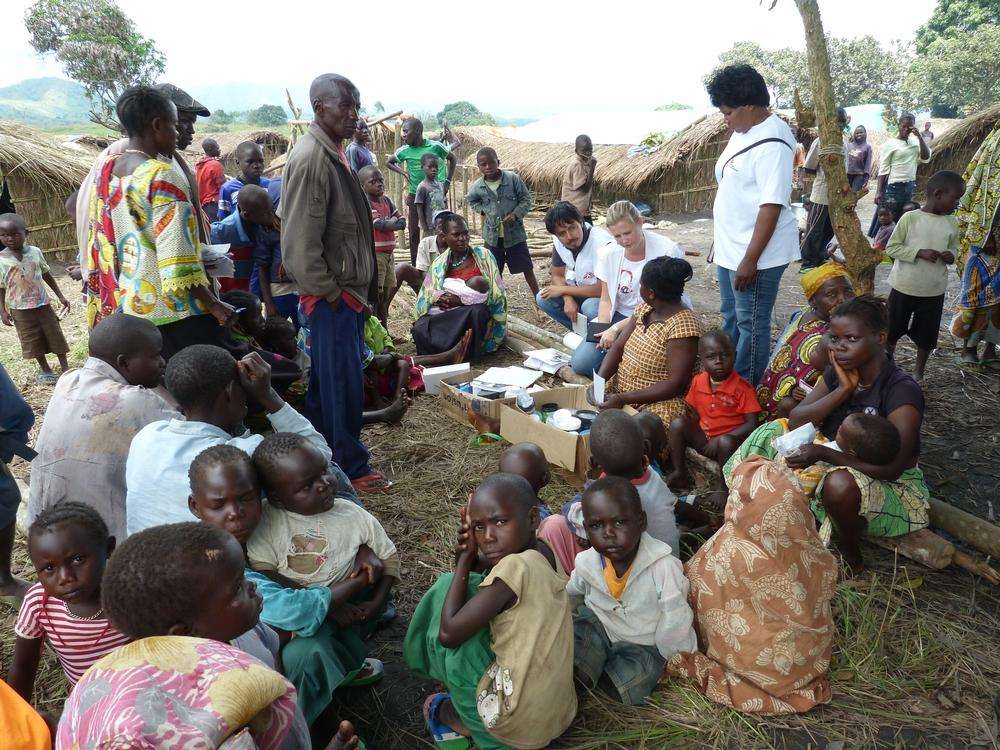Working in a highly volatile security context, Doctors Without Borders/Médecins Sans Frontières (MSF) vaccinated 26,125 children against measles in South Irumu in November. Fighting between government forces (FARDC) and the militia of the Front for Patriotic Resistance of Ituri (FRPI) has ravaged this region of northeastern Democratic Republic of Congo (DRC) since late August 2013.
“The goal of this intervention was to prevent the spread of the measles epidemic in the region because vaccination coverage was very low and cases had been recorded near Geti,” explains Assiat Magomedova, MSF’s head of mission in Bunia. “Given the population movements provoked by the fighting, the risks of epidemic were very real.”
Medical staff and logistics teams performed the vaccinations at four sites where displaced persons have gathered—two in the town of Geti and two others in the outlying communities of Munobi and Kakado. Throughout the campaign, MSF treated a steady stream of parents who were aware of the risks of measles and had brought their children to be vaccinated. Some walked nearly 20 kilometers [12 miles] to reach a vaccination site.
Vaccinations and Distributions of Water and Supplies Continue
MSF is currently organizing vaccination campaigns in areas further from Geti, in the Bukiringi, Maga, Aveba, Chekele, and Olongba health districts. “The relative security at this time should allow us to vaccinate an estimated 42,000 children between the ages of 6 months and 15 years,” says Caroline Voûte, MSF’s emergency program manager in Orientale Province.
“We will vaccinate all those who have not yet been vaccinated. We’re basing this on the population census, but it’s difficult to determine the exact number because the populations continue to move around on a daily basis based on the security situation.”
In addition to vaccinations, MSF continues to support medical facilities in Geti. Since the crisis began, the organization’s health care providers have seen more than 33,000 patients, performed more than 200 surgeries and 90 Caesarean sections, and delivered an additional 130 babies.
Along with medical assistance, MSF has also distributed basic supplies, including mosquito nets, blankets, plastic sheeting for shelters, containers, and soap, to nearly 9,000 families living at displaced persons’ sites. Logistics teams have also been working around the clock to set up water treatment and pumping stations and distribute drinking water to 45,000 people (250m³ of water per day). One thousand latrines were built to prevent the risks of epidemic associated with poor sanitary conditions.
Support is Needed for Those Who Return
“Although there has been no fighting near inhabited areas in the last two weeks, people remain watchful because the situation is still very unstable,” Magomedova says. “Some people are going home, but most continue to gather around the aid sites.” Some villages are still empty because the populations fear fighting nearby and the presence of armed groups close to their homes.
“The populations who have remained in their communities and those who are returning need support in areas where health facilities have been looted of all supplies and equipment and schools are not yet operating,” continues Magomedova. “There will be a lot to do in terms of assistance before the situation starts to return to normal for the area's residents.” MSF is continuing to provide medical support in the area and will help the health facilities, which were ransacked during the fighting, to reopen.
MSF began working in Geti in 2006, when it provided assistance to people who had fled fighting between government soldiers and militias. The organization has had a continuous presence since 2008 through its support to the health center and the Geti general referral hospital, working with health authorities.





